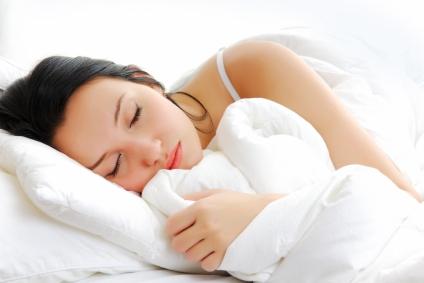
1) The relationship between sport and sleep:
Knowing the relationship between sleep and sport, is to ask two questions:
- The sport he promotes a peaceful sleep?
- Sleep Is there a decisive factor in athletic performance?
It works both ways.
The sport, practiced with pleasure and without excess, can « sleep well ». Fatigue healthy, peaceful rest.
And in the other direction: that is not sleeping well is tired and is tired is less enthusiasm for its activities, including sports activities.
2) Let us see this more precisely:
a) The phases of sleep
The sleep cycle is composed of two phases (two parts): the phase of slow wave sleep (SL), and the phase of paradoxical sleep (PS). The cycle lasts about 90 minutes and is repeated several times during the night.
The slow phase of sleep evolves in four stages: that of falling asleep, then three periods of deeper sleep. The last two times are known as slow wave sleep (SWS).
The timing of REM sleep is dreams. Lighter, but not trivial, it stretches more and more over time as and when the night. The muscles are totally relaxed, but the brain is as active as during the day.
b) The impact of sport on sleep
Athletic activity increases the depth of sleep. That is why it has mainly the effect on slow wave sleep.
This effect exists only if the athlete uses more than 60% of VO2 max, that is to say over 60% of his lung capacity.
The intense physical training prolongs the sleeping time, and alters its quality: the athlete falls asleep faster, the SLP is longer, and REM sleep, therefore, shorter.
c) Positive consequences of these effects
For the SLP, the cell growth hormones, which help rebuild muscle tissue, are very likely to be active. The rate of growth hormone products are even more important than in physical activity, regardless of the intensity of physical activity.
On the other hand, the SLP will result in decreased excitability of brain cells. As it is they who control the muscles, it causes a general relaxation of muscles. This relaxation of particular benefit to the muscles responsible for the maintenance of postural tone (ie, those that we used to « hang out », either standing or seated), and those who were most used sport the day before. Muscle cells regenerate, replenish their stocks of energy. With the muscular inactivity, body temperature decreases, which promotes protein synthesis (under certain assumptions, growth hormone, we have seen that the increased presence during the SLP, stimulate the synthesis of brain proteins). This inactivity also makes possible the faster elimination of toxins and other waste – which causes cramps, tingling, injuries, particularly in the cardiovascular, respiratory and glandular.
Finally, the SLP stimulates the immune defense systems. What is important for an athlete because his immune system is often depressed by intense physical activity.
Conclusion: The SLP is supported by the sport, itself dependent on the quality of recovery, so the SLP. In the best case, the relationship between sport and sleep can be considered a virtuous circle.
d) To ensure that this remains a virtuous circle, the athlete must adhere to certain principles of precaution
- First principle: the time SLP needed for a good recovery depends on the fatigue that must be recovered. More standby time was longer, the SLP should be too. If a person sleeps less than what it needs is the amount of REM sleep that it will decrease. And if it does not really sleeping enough, his SLP will be too short, and put his health at risk. If someone does not allow itself enough hours of sleep, or neglects to worry about, he may be drowsy. For physical activity, then have diminished reflexes, slowed movements, members burdened … But we must not fall into the opposite extreme: too much sleep does a disservice to the athlete. Instead, it will be the same handicaps that will interfere with the athlete: drowsiness, slow … And nothing is more frustrating for an athlete than to feel sleepy, not to find his usual feelings, not to take pleasure even become angry.
- Second principle: do not train late at night. By training later, the athlete will delay the coming of sleep because it will increase the temperature of his body. Thus, it will disrupt their biological clock and thus affect the quality of their sleep. Indeed, the early night of sleep is composed predominantly of SLP, while by moving towards the morning, REM sleep takes up more space. The SLP is more effective for recovery than REM sleep.
- The third principle is to ensure the quality of its nutrition. Not only the athlete should think about adapting your diet to athletic needs, but he must also believe that to sleep properly, the nutrient balance should be appropriate. To eat too much protein (meat, eggs), the amount of total sleep decreases, while increases the duration of REM sleep. While a meal high in carbohydrates (sugars and fast) will increase the total sleep time, and to promote the SLP.
- Fourth principle: avoid overtraining. In addition to its other adverse effects, overtraining causes of sleep disorders.
e) To go further in understanding
The SLP could play an important role in cognitive processes and more sophisticated, such as learning complex psychomotor skills. This would be in the SLP so that the acquisition of a dribble, a feint, or any other technical game is finalized.
Source: Sports Medicine – Google Translation

